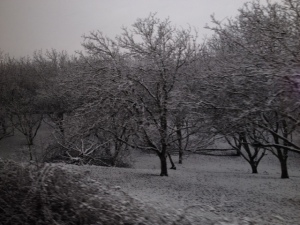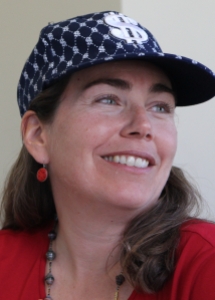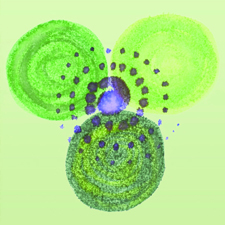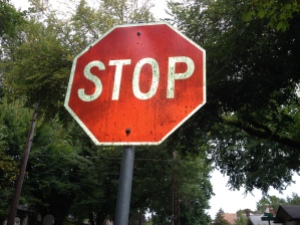 I tentatively knocked on the driver’s window. The young man curled up behind the steering wheel didn’t move. The car’s motor was silent, but the radio blared. Military ID tags hung from the rearview mirror. A notebook page filled with writing was lying on the passenger seat.
I tentatively knocked on the driver’s window. The young man curled up behind the steering wheel didn’t move. The car’s motor was silent, but the radio blared. Military ID tags hung from the rearview mirror. A notebook page filled with writing was lying on the passenger seat.
I knocked again, harder this time. No response.
A few minutes before, I’d walked past the parked car on my morning walk and noticed a garden hose lying on a blackened cloth on the ground below the tailpipe and going to car’s front window. The young man inside looked asleep.
I walked a few feet further before what I’d just seen began to register. Heart racing, my thinking slowed.
Moments later another person passed on his morning walk. “Did you see that guy?” I asked with hesitation.
“Yes. Maybe he is homeless and just sleeping in his car,” he replied.
“But what about the hose?”
“That’s strange, but what can I do?” he answered before continuing on his walk.
I couldn’t walk away. Unable to rouse him, I hurried home to call the police.
Howard walked with me back to the car, arriving just as the ambulance pulled up beside the fire truck and police car. We saw emergency technicians roll an empty gurney from the truck, then put it away. There was more movement, but we couldn’t see clearly. The ambulance doors closed, but it didn’t go anywhere.
Was he in the ambulance? Was he dead?
I identified myself to the police as the one who had called. When they were finished with the empty car, one of the officers came over to talk to me.
The young man was alive and alert in the ambulance. He had told the officers that he’d been there since four that morning and had written an extensive suicide note. The policeman reassured me the young man was heading to the hospital where he would get the help he needed.
Help sounded good. Yet, I hoped that obtaining psychological help, and it’s cost, wouldn’t add to the burdens that had already made the young man feel like life was too much.
Last week was the tenth anniversary of the suicide of a friend’s daughter. And now another young adult who decided that life wasn’t worth living had touched my life.
I don’t know what brought this stranger to that brink. I do know that he was born into a world where too often the shadows of our global problems are as dark as midnight. It is easy to lose hope.
I know there are no easy answers or solutions to our global shadows for individuals or for the human family. I do believe that this is a moment in history where our most important spiritual task is to learn how to stand steady and awake with an open heart in the midst of the chaotic crumbling of so much around us. So little in most people’s experience prepares them with these skills.
I walked past the empty car on the way to church the following day. It was Pentecost. The One who was fully human and fully divine, the One who lived and died and then lived again had left a second time. It had looked as if all was lost. Again. Midnight indeed.
Two thousand years ago on a day we now call Pentecost, Jesus’ friends gathered together, hoping beyond hope that all was not lost. Suddenly a mighty wind blew, tongues of flame appeared and the Holy Spirit broke into their lives.
During the Sunday sermon, we were invited to share our experiences of being touched by the Holy Spirit. In this Episcopal congregation, people spoke up and shared story after story.
Young man. Share your stories—the ones of your grief and the ones of your dreams. Listen to others share theirs.
I have my own story about the morning I met you. Since I planned to walk to a class a few hours later, I had debated whether or not to go on my early morning walk. In the midst of my mental debate, I felt the Spirit nudge me to walk out the door, and I did.
I saw you and have been carrying you in my heart ever since.
I am eternally grateful that strangers are called to be present to one other, even in our darkest hour. It gives me hope.







